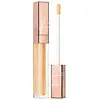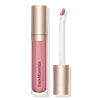What's inside
What's inside
 Key Ingredients
Key Ingredients

 Benefits
Benefits

 Concerns
Concerns

 Ingredients Side-by-side
Ingredients Side-by-side

Hydrogenated Polyisobutene
EmollientDiisostearyl Malate
EmollientButyrospermum Parkii Butter
Skin ConditioningCalcium Sodium Borosilicate
Ethylene/Propylene/Styrene Copolymer
Silica Dimethyl Silylate
EmollientPunica Granatum Flower Extract
Skin ConditioningRosmarinus Officinalis Leaf Extract
AntimicrobialButylene/Ethylene/Styrene Copolymer
BHT
AntioxidantTocopherol
AntioxidantTin Oxide
AbrasivePolyethylene
AbrasiveMicrocrystalline Wax
Emulsion StabilisingCalcium Stearate
Cosmetic ColorantSimmondsia Chinensis Seed Oil
EmollientRubus Idaeus Seed Oil
EmollientHelianthus Annuus Seed Oil
EmollientPhenoxyethanol
PreservativeIron Oxides
Mica
Cosmetic ColorantCI 77891
Cosmetic ColorantHydrogenated Polyisobutene, Diisostearyl Malate, Butyrospermum Parkii Butter, Calcium Sodium Borosilicate, Ethylene/Propylene/Styrene Copolymer, Silica Dimethyl Silylate, Punica Granatum Flower Extract, Rosmarinus Officinalis Leaf Extract, Butylene/Ethylene/Styrene Copolymer, BHT, Tocopherol, Tin Oxide, Polyethylene, Microcrystalline Wax, Calcium Stearate, Simmondsia Chinensis Seed Oil, Rubus Idaeus Seed Oil, Helianthus Annuus Seed Oil, Phenoxyethanol, Iron Oxides, Mica, CI 77891
Diisostearyl Malate
EmollientPhenyl Dimethicone
Skin ConditioningTriisostearyl Citrate
EmollientGlyceryl Behenate
EmollientHelianthus Annuus Seed Wax
Skin ConditioningSimmondsia Chinensis Seed Oil
EmollientPunica Granatum Flower Extract
Skin ConditioningHippophae Rhamnoides Oil
EmollientPrunus Domestica Seed Oil
Skin ConditioningAscorbyl Palmitate
AntioxidantTocopherol
AntioxidantSilica Dimethyl Silylate
EmollientCalcium Stearate
Cosmetic ColorantPolyglyceryl-2 Triisostearate
EmulsifyingAroma
Linalool
PerfumingMica
Cosmetic ColorantCI 77891
Cosmetic ColorantIron Oxides
CI 42090
Cosmetic ColorantCI 15850
Cosmetic ColorantCI 45410
Cosmetic ColorantCI 19140
Cosmetic ColorantDiisostearyl Malate, Phenyl Dimethicone, Triisostearyl Citrate, Glyceryl Behenate, Helianthus Annuus Seed Wax, Simmondsia Chinensis Seed Oil, Punica Granatum Flower Extract, Hippophae Rhamnoides Oil, Prunus Domestica Seed Oil, Ascorbyl Palmitate, Tocopherol, Silica Dimethyl Silylate, Calcium Stearate, Polyglyceryl-2 Triisostearate, Aroma, Linalool, Mica, CI 77891, Iron Oxides, CI 42090, CI 15850, CI 45410, CI 19140
 Reviews
Reviews

Ingredients Explained
These ingredients are found in both products.
Ingredients higher up in an ingredient list are typically present in a larger amount.
We don't have a description for Calcium Stearate yet.
Ci 77891 is a white pigment from Titanium dioxide. It is naturally found in minerals such as rutile and ilmenite.
It's main function is to add a white color to cosmetics. It can also be mixed with other colors to create different shades.
Ci 77891 is commonly found in sunscreens due to its ability to block UV rays.
Learn more about CI 77891Diisostearyl Malate is an emollient and most often used in lip products. It comes from isostearyl alcohol, a fatty acid, and malic acid, an AHA.
As an emollient, Diisostearyl Malate helps create a thin film on your skin to trap moisture in. This helps keep your skin soft and smooth.
Mica is a naturally occurring mineral used to add shimmer and color in cosmetics. It can also help improve the texture of a product or give it an opaque, white/silver color.
Serecite is the name for very fine but ragged grains of mica.
This ingredient is often coated with metal oxides like titanium dioxide. Trace amounts of heavy metals may be found in mica, but these metals are not harmful in our personal products.
Mica has been used since prehistoric times throughout the world. Ancient Egyptian, Indian, Greek, Roman, Aztec, and Chinese civilizations have used mica.
Learn more about MicaPomegranate flower extract has skin conditioning properties.
According to analysis of the flower, it is rich in the triterpenes ursolic acid and oleanolic acid.
Triterpenes are chemical compounds found in various plants such as pomegranates, apples, basil, and rosemary. They have been shown to have anti-inflammatory and antioxidant properties.
The flowers also contain gallic acid and ellagic acid, two types of polyphenols. They possess antioxidant, anti-inflammatory, and antimicrobial properties.
A study from 2017 found pomegranate flower to help heal scars and wounds in rats. Another study from 2020 found this ingredient to help decrease lip wrinkles and increase lip volume.
This ingredient also showed positive effects on dandruff removal in a study from 2015.
Learn more about Punica Granatum Flower ExtractThis silica is mainly used to thicken oils and suspend particles in oils. It is not water soluble.
According to the manufacturer, it:
The manufacturer also claims this ingredient to be useful in makeup.
In lipstick formulations, this ingredient improves color payoff, reduces pigment settling, and reduces oil bleeding. This ingredient also improves the grip of powder products such as dry shampoos.
Learn more about Silica Dimethyl SilylateThis oil comes from the seeds of the desert shrub called Jojoba. It is more commonly known as jojoba oil, a non-comedogenic oil.
Jojoba oil does not contain fragrance and has many fatty-acids, making it a great soothing ingredient.
It also contains Vitamin E, a great moisturizing ingredient. Vitamin E is also an antioxidant and protects your skin against oxidative damage.
This ingredient humectant properties, meaning it helps draw moisture from the air. This helps keep your skin hydrated.
While jojoba has antibacterial properties, it is only able to kill some strains of bacteria.
Studies also show it helps in wound healing. In fact, Indigenous cultures have used jojoba as a moisturizer and to help treat burns for centuries.
Fun fact: Jojoba oil similar to natural human skin sebum, so it has a great effect on dry skin. It is also promising with helping to regulate sebum production.
Due to its fatty acid content, Jojoba oil may not be fungal acne safe. We recommend speaking with a professional if you have any concerns.
Learn more about Simmondsia Chinensis Seed OilTocopherol (also known as Vitamin E) is a common antioxidant used to help protect the skin from free-radicals and strengthen the skin barrier. It's also fat soluble - this means our skin is great at absorbing it.
Vitamin E also helps keep your natural skin lipids healthy. Your lipid skin barrier naturally consists of lipids, ceramides, and fatty acids. Vitamin E offers extra protection for your skin’s lipid barrier, keeping your skin healthy and nourished.
Another benefit is a bit of UV protection. Vitamin E helps reduce the damage caused by UVB rays. (It should not replace your sunscreen). Combining it with Vitamin C can decrease sunburned cells and hyperpigmentation after UV exposure.
You might have noticed Vitamin E + C often paired together. This is because it is great at stabilizing Vitamin C. Using the two together helps increase the effectiveness of both ingredients.
There are often claims that Vitamin E can reduce/prevent scarring, but these claims haven't been confirmed by scientific research.
Learn more about TocopherolThis ingredient is a combination of red, black, and yellow iron oxide pigments. This combination of colors is usually found in foundation, because it results in a "skin" color.